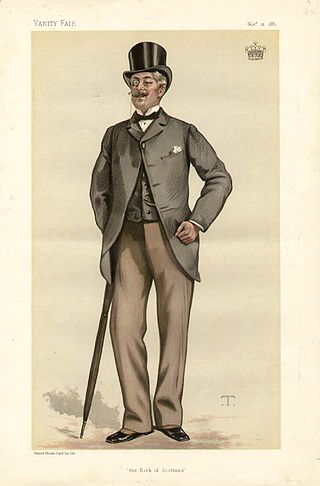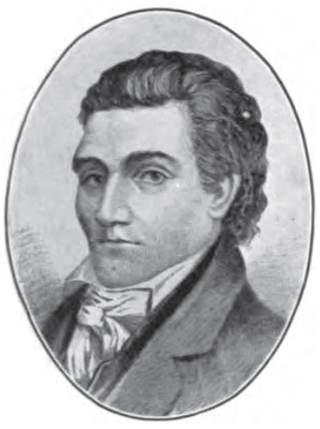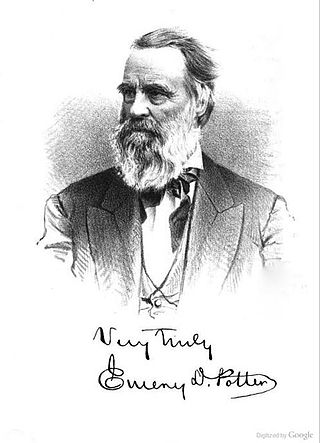Related Research Articles

The Knights of Pythias is a fraternal organization and secret society founded in Washington, D.C., on February 19, 1864. The Knights of Pythias is the first fraternal organization to receive a charter under an act of the United States Congress. It was founded by Justus H. Rathbone, who had been inspired by a play by the Irish poet John Banim about the legend of Damon and Pythias. This legend illustrates the ideals of loyalty, honor, and friendship that are the center of the order.

Morrison Remick "Mott" Waite was an American attorney, jurist, and politician from Ohio. He served as the seventh chief justice of the United States from 1874 until his death in 1888. During his tenure, the Waite Court took a narrow interpretation of federal authority related to laws and amendments that were enacted during the Reconstruction Era to expand the rights of freedmen and protect them from attacks by white supremacy groups such as the Ku Klux Klan.

The territory of the United States and its overseas possessions has evolved over time, from the colonial era to the present day. It includes formally organized territories, proposed and failed states, unrecognized breakaway states, international and interstate purchases, cessions, and land grants, and historical military departments and administrative districts. The last section lists informal regions from American vernacular geography known by popular nicknames and linked by geographical, cultural, or economic similarities, some of which are still in use today.

Noah Haynes Swayne was an American jurist and politician. He was the first Republican appointed as a justice to the United States Supreme Court.

William Henry Harrison Miller was an American lawyer and Attorney General of the United States.
Titus Hosmer was an American Founding Father, lawyer, and jurist from Middletown, Connecticut. He was a delegate for Connecticut to the Continental Congress in 1778, when he signed the Articles of Confederation.

Robert Francis St Clair-Erskine, 4th Earl of Rosslyn, styled Lord Loughborough from 1851 until 1866, was a British Conservative politician. He served as Captain of the Gentlemen-at-Arms under Lord Salisbury between 1886 and 1890.

Royal Tyler Sprague was the 11th Chief Justice of California.

Peter Marshall Hitchcock was an attorney, teacher, farmer, soldier, legislator, and jurist. His judicial career included 28 years service on the Ohio Supreme Court, 21 years of them as Chief Justice.

Martin Baum was an American businessman and politician.

Hezekiah Lord Hosmer was a United States representative from New York. Hosmer came from a prominent family; his father Titus Hosmer signed the Articles of Confederation for Connecticut, and Hosmer's brother Stephen became the Chief Justice of the Connecticut Supreme Court. Hezekiah studied law and was admitted to practice in the mayor's court of Hudson, New York. He was recorder of Hudson in 1793 and 1794, and was elected as a Federalist to the Fifth Congress, serving from March 4, 1797 to March 3, 1799. He was one of the managers appointed by the House of Representatives in 1798 to conduct the impeachment proceedings against Tennessee U.S. Senator William Blount.

Emery Davis Potter was an American lawyer and politician who served two non-consecutive terms as a U.S. Representative from Ohio in the mid-19th century.

Jesse Quinn Thornton (1810–1888) was an American settler of Oregon, active in political, legal, and educational circles. He served as the 6th Supreme Judge of the Provisional Government of Oregon, presented Oregon's petition for official territorial status to Congress, served in the Oregon Legislature, and wrote the state's motto.

William Cary Van Fleet was an associate justice of the California Supreme Court and a United States district judge of the United States District Court for the Northern District of California.
The history of vigilante justice and the Montana Vigilantes began in 1863 in what was at the time a remote part of eastern Idaho Territory. Vigilante activities continued, although somewhat sporadically, through the Montana Territorial period until the territory became the state of Montana on November 8, 1889. Vigilantism arose because territorial law enforcement and the courts had very little power in the remote mining camps during the territorial period.

James Dabney Thornton was an American lawyer and judge who served as associate justice of the Supreme Court of California from 1880 to 1891.
Henry L. Warren was chief justice of the Territorial Montana Supreme Court, appointed by President Andrew Johnson and serving from 1868 to 1871.

Bertha Constance Perry Ronalds was an American philanthropist and socialite during the Gilded Age.
References
- ↑ Biography of Hosmer, Montana Memory Project
- ↑ Journal of the Executive Proceedings of the Senate of the United States of America, Vol. XVII, Washington: Government Printing Office, 1901, p. 116
- ↑ Virginia City post office records kept by Hosmer
- ↑ Online Masonic bio of Hosmer
- ↑ Proceedings of the M. W. Grand Lodge of Free and Accepted Masons of the State of California, San Francisco: Frank Eastman, 1871, p. 485
- ↑ History of the Bar and Bench of California, John A. Hosmer, 1901, p. 873
- ↑ New York Genealogical and Biographical Record, Vol. 37 (1906), The Throope Family and the Scrope Tradition, Winchester Fitch, p. 46
- 1 2 Hezekiah Lord Hosmer II
- ↑ Genealogy of the Hosmer Family, James Hosmer, 1861
- ↑ Montana: A State Guide Book, Federal Writers' Project, revised ed. 1949, p. 102
- ↑ The New York Genealogical and Biographical Record (volume 83)
